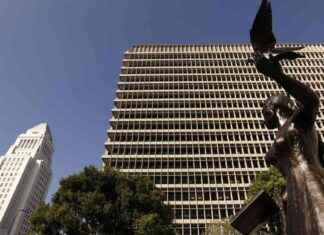The three british cities have decided to step on the accelerator toward the goal of “zero emissions”
in Rebellion, or extinction: a movement reactivates the ecological activist with strong protests
Hundreds of environmentalists cut the bridges of London
One after another, Manchester, Bristol and London, have decreed in the last few weeks, the “weather emergency” and have committed to redouble their efforts to become cities “carbon neutral”. Spurred by the new environmental group Extinction Rebellion, with a series of chained actions that collapsed recently in London, british cities have decided to step on the accelerator toward the goal of “zero emissions”.
The more ambitious scheme is the Bristol, which has just approved a motion to “neutralize” their carbon emissions by 2030, twenty years before the originally stated. The measure was driven by the Green Party and passed unanimously on November 13.
“we can’t wait for the UN or national governments continue to negotiating, and negotiating, when we have only 12 years to act,” said councilwoman Carla Denyer, creator of the initiative. “It is at the local level where you have to take the first step, with actions that are ambitious in our cities.”
“We have to additionally demonstrate that it is possible to act against climate change while maintaining and even improving the quality of life of the people,” said Denyer, who stressed the need to include climate impact studies in all projects starting in 2019, including the controversial expansion of Bristol airport.
The way was marked a few days before Manchester, with the adoption of the plan christened as “Playing Our Full Part” (“With our full participation”). The city has committed to develop a carbon budget that limits the total emissions of greenhouse gases to 15 million tonnes in 2018 to 2100, with the goal of an annual reduction of 13% and the goal of achieving “neutrality” in the 2038.
The London Assembly has approved, for its part this week to a motion urging the mayor, the labour party, Sadiq Khan, to advance the goal of “zero emissions” by 2050 to 2030. “We’re in the middle of a weather emergency that presents a threat to our health, for our planet and for the future of our tasks”, has recognized Khan, at the time of filing the new environmental strategy for London which also includes the fight against pollution and against waste (with the aim also of becoming a city, “circular”).
Toll-toxicity
London gave a step forward with the introduction of the T-Charge (the toll of toxicity) in October 2017. The next year will be replaced by the so-called ULEZ area (ultralow-emission), in a larger perimeter of the center. It is estimated that one million cars, which operate with diesel or gasoline, shall pay the equivalent of 14 euros per day for travel within the ULEZ (plus 12 euros which now costs the “toll of congestion”).
The move has created controversy among the drivers, but the mayor insists that it is a necessary first step to move towards “neutrality” and towards a clean air in the cities. The energy efficiency plans, the increased contribution of wind power plants and solar power plants, the fleet of buses of “zero emissions” and the urban network of “electrolineras” are other initiatives that have provided London, with a special emphasis in further expanding their green spaces and to promote projects of “compensation”.
Sadiq Khan urged passage of the central Government to follow the impulse of the cities, reinforcing the national targets against the climate change and “giving real powers to local governments to finance their plans and to protect future generations”.
The british Government, particularly active at the summit of the COP24, has decided to present its candidacy to host the summit COP26 2020, the year that may mark the final point of inflection. “It’s going to be a meeting of vital importance and we want to be part of the process to turn this summit into a success”, declared the secretary of State for Climate Change, Claire Perry. The british Government wants to somehow “compensate” for the Brexit demonstrating their willingness to lead global action on the environmental front.
According to the criteria of
Learn more






